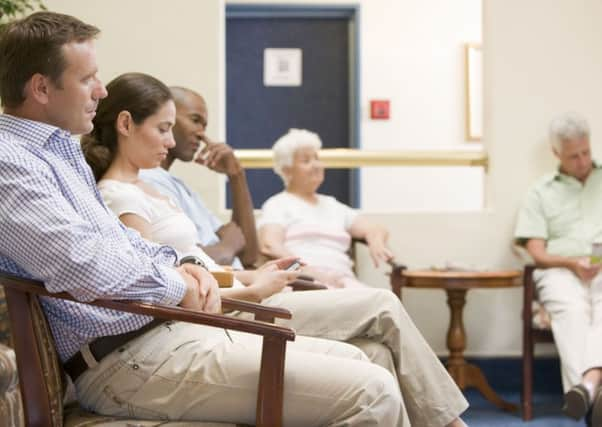Lizzy Buchan: Time to come clean on NHS staff levels


This should have been a simple task, a chore complicated only by trying to dig out necessary paperwork from some dark drawer.
However the endeavour suddenly took on Herculean proportions when I discovered the practice had restricted its list, so registration forms are only given out at 8am on Tuesday mornings to the first 25 people in the queue.
Advertisement
Hide AdAdvertisement
Hide AdQueuing up with at dozens of people before 8am on a chilly morning, it became clear that the so-called GP crisis is more than just rhetoric.
The latest NHS figures show the number of family doctors in Scotland has slumped by nearly 100 since 2013, with the number of vacancies doubling since 2013.
Reports have proliferated of lengthy waiting times, losses of millions of hours of consultations, and serious burnout among dedicated and experienced doctors.
General practice is ailing and the current treatments are evidently not working.
Ministers suggested creating a pool of retired doctors to fill in when health centres are struggling, as part of a £2 million rescue package.
GP leaders have rightly dismissed the funding as “nowhere near sufficient to make an impact on the problems facing general practice”.
However the locum pool is a good idea, which showcases the kind of thinking needed to deliver the wide-ranging change required.
Everyone needs their GP but it seems that no matter how often the profession calls out for help, it still receives a significantly lower share of the NHS funding than acute hospitals do.
Advertisement
Hide AdAdvertisement
Hide AdGPs provide around 90 per cent of all patient contact within the NHS but the profession will receive just 7.4 per cent of NHS Scotland’s £12 billion funding pot next year.
That is unacceptable, whichever way you look at it.
The current situation has been described as “the biggest crisis among family doctors for a generation”.
The SNP has been trying to take back control by investing £50m in primary care but it has been slow off the mark and much damage may have already been done.
GPs cannot be plucked from thin air and there cannot be not enough trainees coming up through the ranks when a fifth of the training places went unfilled last year.
The Health Secretary announced yesterday that Scotland’s first graduate medical programme will start in 2018, which aims to attract the best talent to work on the Scottish NHS.
But patients need to know they will be able to see their doctor now if they really need to.
Flagship health and social care integration plans call for moving care away from hospitals, as while acute care sounds exciting, the majority of patients will need blood pressure checks not heart bypasses.
None of this should take away from the excellent work done in hospitals, where acute and emergency care will always be needed.
Advertisement
Hide AdAdvertisement
Hide AdHowever it is clear that too long spent in hospital is bad for both patients and the NHS, as it costs more and puts patients at risk of further infection.
Staffing shortages are not restricted to Scotland or to general practice, but the SNP’s insistence that there are record numbers of NHS staff does nothing to help the problem.
The time has come for honesty rather than spin from everyone involved, otherwise there is little hope of recovery.